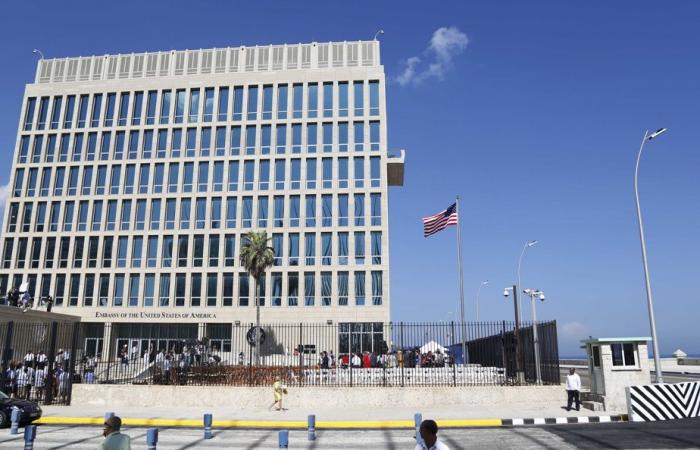(Washington) The various intelligence agencies in the United States generally judge that it is “very unlikely” that a foreign adversary is at the origin of the mysterious “Havana syndrome”, but the community remains divided on the question , according to an intelligence assessment released Friday.
Posted at 4:01 p.m.
Starting in 2016, American and Canadian diplomats stationed in Cuba reported experiencing complaints, namely migraines, dizziness, nausea, vision problems, etc.
These “abnormal health incidents”, according to the terminology used in the United States, were then reported elsewhere in the world (China, Germany, Australia, Russia, Austria) and even in Washington.
From the start, the affair led to widespread speculation about its origin. Some US officials initially downplayed the symptoms sometimes attributed to stress, with others privately speaking of possible attacks and already suspecting countries like Russia.
“Most members of the intelligence community continue to believe that it is “highly unlikely” that a foreign adversary is responsible for the events reported as possible anomalous health incidents,” underlines a new assessment published on the Bureau’s website of the Director of National Intelligence (DNI).
However, “a component of [cette communauté du renseignement] estimates that there is “about the same chance” that a foreign actor used a new weapon or prototype device to harm a small, undetermined subset” of American personnel, the text says.
And another component judges that there is “about equal chance” that a foreign actor developed a weapon or device that could have harmed American personnel, the assessment adds.
In 2017, the United States withdrew non-essential employees from its recently reopened embassy in Havana and expelled Cuban diplomats, amid suspicions of electronic warfare.
In 2023, however, President Joe Biden’s administration reopened the U.S. immigration office in Havana, which had been closed during the crisis.






